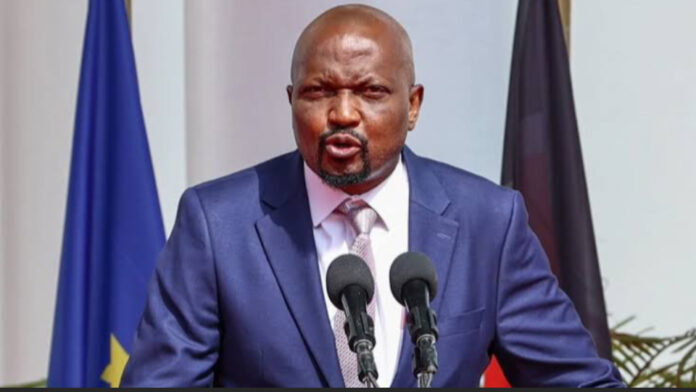The government is set to introduce a new tax collection system aimed at closing the loopholes in Kenya’s informal sector, where tax evasion has long been an issue. From December 2024, all transactions processed through paybills and tills—widely used digital payment methods—will automatically be tracked for taxation purposes. This shift is designed to ensure that even small businesses contribute their fair share of taxes.
Moses Kuria, the government’s senior economic advisor, revealed that the Kenya Revenue Authority (KRA) would use these payment platforms as virtual electronic tax registers (ETRs). He explained that this plan is part of a broader government effort to widen the tax base and capture revenue from informal businesses that often slip through the cracks of traditional tax systems.

Highlights:
- Government to require small businesses to use paybills and tills as virtual electronic tax registers (ETRs).
- Plan aims to capture more tax revenue from Kenya’s informal sector, starting December 2024.
- Move targets the 16 million Kenyans working in informal businesses, who currently contribute just Ksh12 billion in income tax.
Widening the Tax Base
Despite 16 million Kenyans being employed in the informal sector, KRA only collects Ksh12 billion in income tax from them annually. In contrast, Ksh500 billion is collected from the 3 million formally employed citizens. Kuria highlighted this imbalance and noted that the new system would help close the gap. “By Christmas 2024, every bill will be a virtual ETR, making it impossible for businesses to evade taxation, no matter their size,” he announced.
This move is expected to significantly increase revenue collection in Kenya by targeting informal businesses, which have traditionally been difficult to tax. Kuria emphasised that the government’s ultimate goal is to ensure all businesses, whether formal or informal, are contributing fairly.
Evolution in Tax Collection
The new system represents a significant evolution in Kenya’s tax collection methods. Electronic tax registers (ETRs) were first introduced in 2005 to streamline the collection of value-added tax (VAT) and combat tax evasion. However, the system has its limitations, as it relies on manual data entry, leaving room for discrepancies and underreporting.
By integrating mobile payment platforms—like those used by major telcos and banks—into the tax system, the government hopes to automate tax data collection, reduce human error, and ultimately close tax loopholes. Currently, there are only 200,000 ETR devices in use, compared to over 2 million digital touchpoints from mobile payment systems. This demonstrates the untapped potential of mobile payments in enhancing tax compliance.
Potential for Tax Reductions
Kuria hinted at the possibility of lowering income taxes for formal sector employees if the informal sector becomes fully integrated into the tax system. “Once these informal businesses join the tax bracket, we may be able to reduce the burden on the 3 million who are currently shouldering most of the country’s tax obligations,” he said.
Kenya has a robust digital economy, and mobile payments have become a central part of daily life. According to data from the Central Bank of Kenya, the country had over 78 million registered mobile money accounts as of August 2024, with around 400,000 active paybills and tills. This expansive digital infrastructure offers the government a powerful tool to monitor transactions and capture previously lost revenue.
“There will be nowhere to hide,” Kuria stated confidently, emphasising that Kenya’s digitised economy gives it a major advantage in expanding its tax base.
READ ALSO:
MINISTRY OF HEALTH RESPONDS TO CLAIMS OF ADVERSE POLIO VACCINE REACTIONS IN CHILDREN
